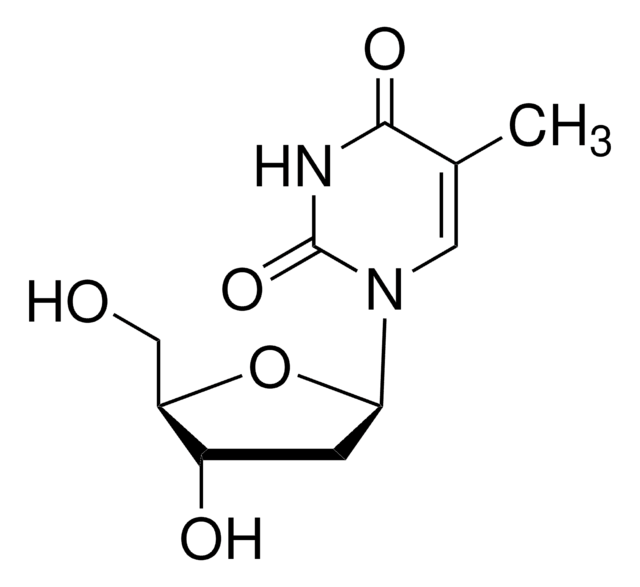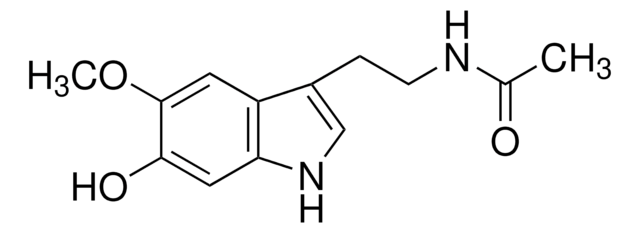M5820
M344
≥98% (HPLC), powder
Synonyme(s) :
4-(Dimethylamino)-N-[7-(hydroxyamino)-7-oxoheptyl]-benzamide, MS 344, D237, N-Hydroxy-7-(4-dimethylaminobenzoyl)-aminoheptanamide
About This Item
Produits recommandés
Niveau de qualité
Essai
≥98% (HPLC)
Forme
powder
Conditions de stockage
protect from light
Couleur
white to beige
Solubilité
DMSO: 10 mg/mL, clear
Température de stockage
2-8°C
Chaîne SMILES
CN(C)c1ccc(cc1)C(=O)NCCCCCCC(=O)NO
InChI
1S/C16H25N3O3/c1-19(2)14-10-8-13(9-11-14)16(21)17-12-6-4-3-5-7-15(20)18-22/h8-11,22H,3-7,12H2,1-2H3,(H,17,21)(H,18,20)
Clé InChI
MXWDSZWTBOCWBK-UHFFFAOYSA-N
Actions biochimiques/physiologiques
Caractéristiques et avantages
Produit(s) apparenté(s)
Code de la classe de stockage
11 - Combustible Solids
Classe de danger pour l'eau (WGK)
WGK 3
Point d'éclair (°F)
Not applicable
Point d'éclair (°C)
Not applicable
Faites votre choix parmi les versions les plus récentes :
Déjà en possession de ce produit ?
Retrouvez la documentation relative aux produits que vous avez récemment achetés dans la Bibliothèque de documents.
Articles
Epigenetic modifications are thought to occur through two key interconnected processes—DNA methylation and the covalent modification of histones.
Notre équipe de scientifiques dispose d'une expérience dans tous les secteurs de la recherche, notamment en sciences de la vie, science des matériaux, synthèse chimique, chromatographie, analyse et dans de nombreux autres domaines..
Contacter notre Service technique






